I'm making a web browser based real time game.
I'm using jQuery ajax calls to call a web service method for the client to update their speed & location via json data. Returned is a list of strings which contain data for the locations and speeds of all other players.
At the moment I'm not even passing any data and am returning an example List entry.
This is the call, made from javascript every 25ms:
$.ajax({
type: "POST",
url: "Default.aspx/CheckIn",
data: "{}",
contentType: "application/json; charset=utf-8",
dataType: "json",
success: function (response) { UpdateEntityList(response); }
});
This is the web service method:
[WebMethod]
public static List<String> CheckIn()//(double xPos, double yPos, double heading, double speed)
{
List<String> Entities = new List<string>();
Entities.Add("0|0|50|50|5|180");
return Entities;
}
Can anyone suggest how to fix the problem, or even a better way of achieving my goal altogether? (Since I've only been doing web dev for a couple of weeks, I don't know that this is the best way)
Thanks
